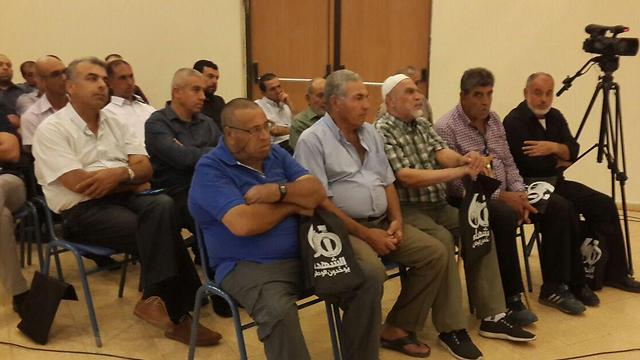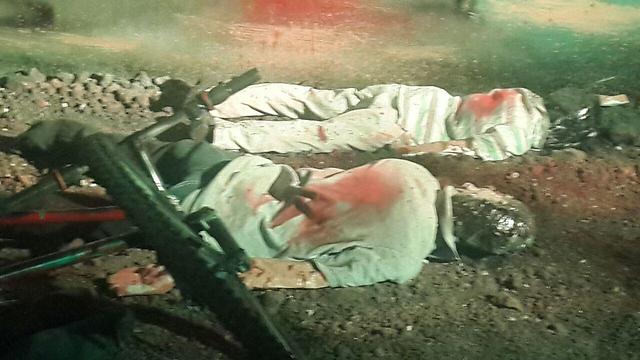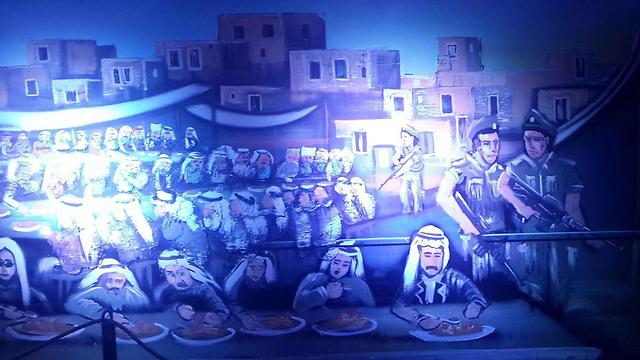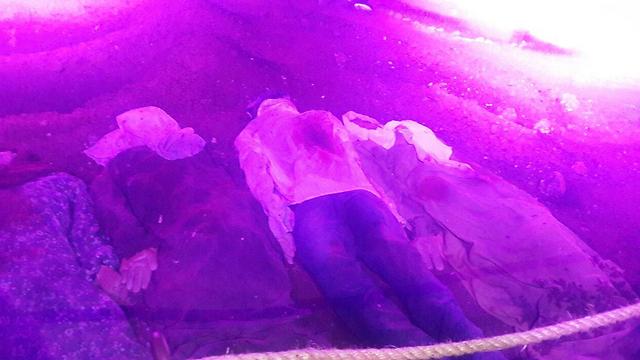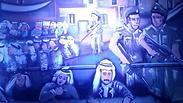
Artwork commemorating the massacre.
Arab Israelis mark 60 years since Kafr Qasim massacre
A press conference marked six decades since the incident in which dozens of Arab residents of the Arab Israeli city were killed by members of the Border Police. A new art gallery marking the massacre's anniversary was opened recently.
"Acknowledge the Kafr Qasim massace." That is the call that came out of a special press conference marking 60 years since the bloody incident in which dozens of residents of the Arab Israeli city were slain. The event's organizers demanded that the Israeli government make related documents available and officially acknowledge it. "The government of Israel must acknowledge the massacre and take responsibility," said Kafr Qasim mayor Adel Badir.
The Kafr Qasim massacre occurred on October 29, 1956. That day, the Israeli government issued a curfew on several towns, including Kafr Qasim. Israeli Arabs were under a regime of martial law at the time.
At about 5pm, several dozen locals attempted to return home, unaware of the curfew. They were then shot at by members of the Israel Border Police. Forty-eight persons were killed, including 19 men, 6 women, and 23 children under the age of 18. Arab Israelis often cite the number of those killed as 49, due to one of the women who were killed being pregnant at the time.
The Border Police soldiers who fired the deadly shots were tried and convicted in a case that set a precedential legal example for what's called a "blatantly illegal order"—an order which, if received, a soldier has a duty to refuse.










